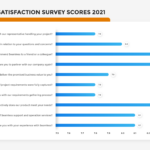Discover why astronauts experience recurring headaches in space
- Space headaches are a common problem for astronauts in space
- Headaches can occur even in astronauts who don’t experience them on Earth
- A recent study shows that almost every astronaut experiences headaches within the first week of leaving Earth
- Space headaches are believed to be caused by increased intracranial pressure due to redistributed fluids in the body
- Headaches can persist throughout the mission and even after returning to Earth
- Treatment options for space headaches include pain-relieving drugs, sleep, and exercise
- Further research is being conducted to understand the causes of space headaches and develop treatments
Spaceflight can be a real headache — literally. Astronauts have reported experiencing head pain during their time in microgravity, even if they never had headaches on Earth. A recent study published in Neurology reveals that these ‘space headaches’ are quite common. Within the first seven days of leaving Earth, almost every astronaut surveyed experienced a headache. The researchers believe that increased intracranial pressure caused by redistributed fluids in the body is the likely cause of these headaches. The discomfort can persist throughout the mission and even after returning to Earth. Treatment options include pain-relieving drugs, sleep, and exercise. Further research is being conducted to understand the causes of space headaches and develop effective treatments.
Factuality Level: 8
Factuality Justification: The article provides a detailed overview of a new study published in Neurology regarding the prevalence of ‘space headaches’ among astronauts. It includes quotes from researchers, explanations of potential causes, and future research plans. The information is based on a recent study and expert opinions, making the article highly factual.
Noise Level: 8
Noise Justification: The article provides detailed information about space headaches experienced by astronauts, including the causes and potential treatments. It includes quotes from experts and references a recent study. However, the article contains some repetitive information and includes irrelevant sections about other space-related news and a movie trailer. While the article is informative, it could benefit from more focus on the main topic and less noise.
Financial Relevance: No
Financial Markets Impacted: No
Presence Of Extreme Event: No
Nature Of Extreme Event: No
Impact Rating Of The Extreme Event: No
Rating Justification: The article does not pertain to financial topics and does not describe any extreme events.
Key People: Ron van Oosterhout (Neurologist at Leiden University Medical Center in the Netherlands and co-author of the new paper), Alexandra Sinclair (Professor of neurology at the University of Birmingham in England)
 www.space.com
www.space.com 




